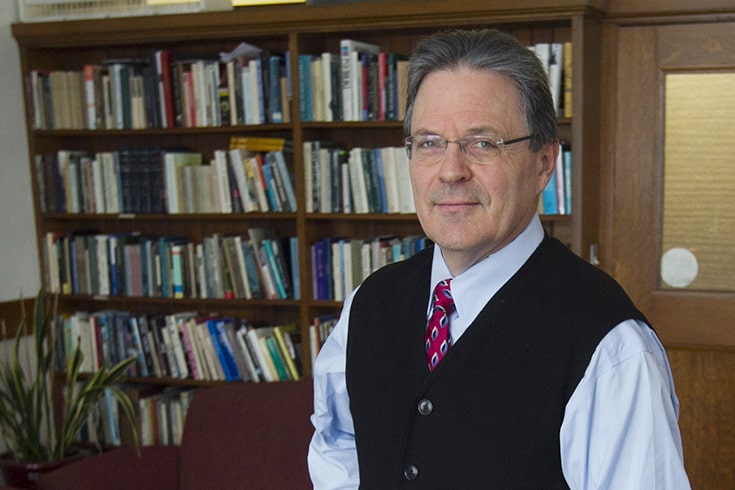Alumni Spotlight: Davis Baird ’76
Worcester, Massachusetts
 What impact did Brandeis have on your academic and personal journeys?
What impact did Brandeis have on your academic and personal journeys?
What was the best piece of advice you received during your time at Brandeis?
Probably that I could both do an honors thesis and finish the entire philosophy major during my senior year, which I did. I took my first philosophy course as a first-semester junior. It was Jean Van Heijenoort's Logic, and I took it because it counted for a humanities gen-ed requirement. I didn't think I could do humanities courses because I had had very bad experiences in English in high school. I enjoyed Logic, so I took a second philosophy course, Robert Greenberg's Introduction to Philosophy, second semester of my junior year. This was the first college course where I had had to write an essay. I was quite apprehensive about this, but found the mixture of writing with an argument liberating. I learned I could write — at least a little. I enjoyed the work of argument, mathematical but with greater significance. I later took Philosophy of Science with Igal Kvart and very much liked this subject. That's when I decided I wanted to do an honors thesis.Tell us a little about what you're doing now, and what comes next?
After Brandeis, I went to Claremont Graduate School to become a high school math teacher. I decided to bag that after finding the others in my program didn't like math. I ultimately enrolled at Stanford University, initially in the master's in philosophy of science program and subsequently in the PhD program. I had a fantastic adviser, Ian Hacking, and wrote a dissertation on the philosophy of statistics. After a year as a visiting professor at the University of Arizona, I landed a tenure-track job in philosophy at the University of South Carolina, where I taught for 28 years. I did a good bit of interesting research in the philosophy of science and technology there. At the same time, I was doing more and more administration work. I chaired the philosophy department at South Carolina for 13 years, then served as the dean of the Honors College for five years. That ultimately led to my current job as provost at Clark University, where I am now in my ninth year. At some point, I will rejoin Clark's faculty ranks and do some more teaching and writing. I do look forward to that.Any awards, achievements or other accolades you'd like to share?
My book "Thing Knowledge: A Philosophy of Scientific Instruments" (2004, University of California Press) was awarded the 2006 Paul Bunge Prize, which led to $3 million in National Science Foundation funding for a large multidisciplinary project on the societal implications of nanotechnology.What's your 30-second elevator speech for "why study philosophy"?
I think it was William James’ metaphor that best captured philosophy for me: the hallway into which, and through which, all other disciplines connect. Philosophy draws connections between ideas, concepts and practices for all human endeavors. Done right, it opens new concepts and presents connections elegantly, persuasively and logically.
This interview was published in October 2018.